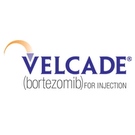FDA Approves Velcade’s Data Showing Survival Benefit In Newly Diagnosed Myeloma Patients

The United States Food and Drug Administration (FDA) has approved changes to the prescribing information for Velcade (bortezomib), including the addition of long-term data from the VISTA trial showing that Velcade extends survival of newly diagnosed multiple myeloma patients. New dose recommendations for patients with moderate to severe liver damage were also added. The changes were approved in response to a supplemental new drug application (sNDA) submitted by Velcade’s manufacturer, Millennium: The Takeda Oncology Company.
The VISTA trial, titled “Velcade as Initial Standard Therapy in Multiple Myeloma: Assessment with Melphalan and Prednisone,” studied the effect of adding Velcade to standard therapy with melphalan and prednisone in untreated multiple myeloma patients ineligible for stem cell transplantation. The Phase 3 international study enrolled 682 participants.
Interim results from the VISTA study determined that Velcade plus melphalan and prednisone (VMP), compared to melphalan and prednisone alone (MP), significantly increased time to disease progression (24 months vs. 17 months), complete response rate (35 percent vs. 5 percent), response rate (69 percent vs. 34 percent), and overall survival (39 percent reduced risk of death in the VMP group). Some of these results were presented at the 2008 American Society of Hematology (ASH) Meeting (see related Beacon news).
Researchers continued to follow up with patients from the VISTA trial to collect further survival information. This follow-up data, presented at the 2009 ASH Meeting, corroborated the existing observations.
The overall survival time of patients treated with VMP continued to be significantly longer, with a 35 percent reduced risk of death compared to the MP group. The median overall survival time for patients receiving MP was 43.1 months, while the median overall survival time for VMP patients had not been reached by the time the results were presented.
The safety profile for VMP was consistent with the known safety profiles of Velcade and MP. For example, Velcade is known to cause peripheral neuropathy (pain or numbness in the hands or feet). Patients receiving VMP had a higher rate of peripheral neuropathy than patients receiving only MP (47 percent vs. 5 percent).
Dose recommendations for patients with liver damage have also been added to the prescribing information for Velcade based on results from an ongoing National Cancer Institute study. The results showed that patients with moderate to severe liver damage should begin Velcade therapy at a reduced dose, while no dose adjustments are necessary for patients with mild liver damage.
On September 2, 2009, Millennium announced that the FDA had accepted their sNDA for review. It was accepted based on the long-term overall survival data from the VISTA study.
Two weeks later, Millennium announced that the FDA granted priority review to their sNDA. This means that the supplemental new drug application would be reviewed within six months instead of ten months. Priority review is only granted when a drug will offer a major advance in therapy or if no treatment is available for a specific disease.
Millennium announced the FDA’s approval of the sNDA on Monday, four months after the sNDA was submitted.
For more information, please see the updated Velcade prescribing information (pdf) as well as the following articles about the FDA’s acceptance of Millennium’s sNDA for review, its priority review status, and the approval of the sNDA.
Related Articles:
- None Found
